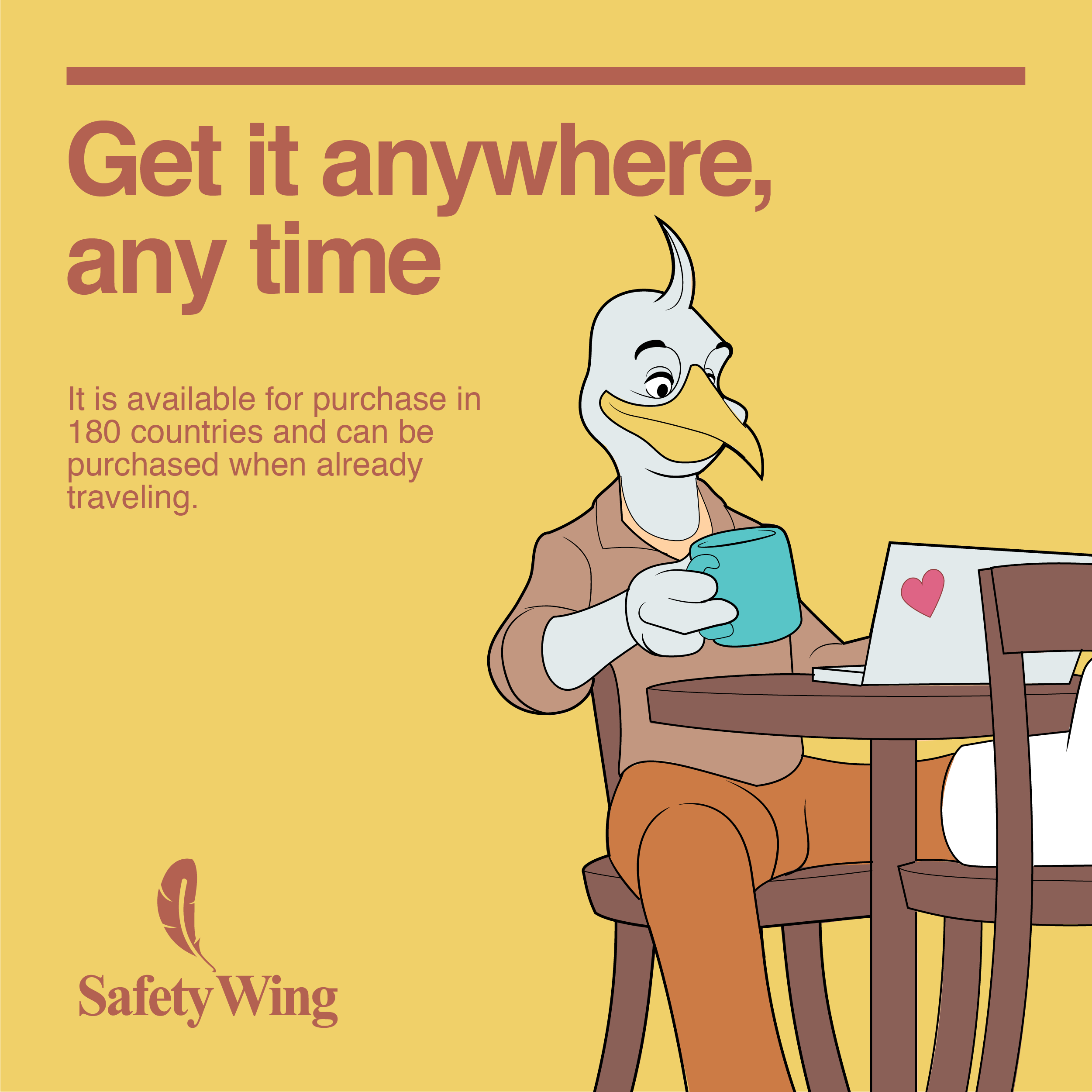Are you planning a trip to Thailand to visit the bustling city of Bangkok, visit the beautiful Thai islands or explore the amazing food scene and culture of Chiang Mai?
Looking to find out what visa you need? You’ve come to the right place!
In this article, we list the types of Thailand visas you can get, if you are eligible to get a visa for Thailand, how long the Thailand visas last for, what they cost and much more!


Types of Visas for Thailand
Visa Exemption Rule for Thailand
First of all the good news! If you are travelling to Thailand and planning to stay for a maximum of 30 days and you’re from one of these countries, you can enter Thailand without a visa.
Due to COVID-19, this exemption rule was extended to a stay of maximum 45 days without requiring a visa.
All you need is a passport that’s valid for at least 6 months beyond your stay in Thailand. There is no fee for entering Thailand under the visa exemption rule.
Note that you have to arrive into Thailand via air, because if you arrive via a land border from a neighbouring country, you only get an exemption to stay 15 days instead of 30.
You may have to show a confirmed return or onwards ticket when entering Thailand. You can travel visa-free two times a year to Thailand. If you want to stay in Thailand for longer, you will need to apply for a proper visa.
Tourist Visa for Thailand
If you’re a passport holder from a country not listed under the Visa Exemption Rule, or you come to Thailand for another purpose than travelling (like business or study) or you want to stay longer than 30 days in total, then you need to apply for a Thailand visa.
Getting a tourist visa ahead of entering Thailand will let you stay in the country for up to 60 days, which can also be extended for another 30 days by doing a visa run. This can bring your maximum stay to 90 days, a great option if you’re planning a longer stay.
When you apply, you can choose Single Entry (valid for 3 months) or Multiple Entry (valid for 6 months), make sure you choose what fits your personal circumstances. There is a fee for this visa starting around USD45.
If you are on a Single Entry tourist visa and leave the country before the 60 days, your remaining days will be lost, just something to keep in mind!
E-Visa On Arrival (E-VOA)
Thailand has introduced the eVisa for certain nationalities to make entering Thailand even easier. Make sure you apply ahead of time, as the processing time to get an eVisa is about 2 working days.
The E-VOA lets you fill out all documents required to enter Thailand ahead of time and fast tracks you on your arrival in Thailand as you can simply skip the lines to receive you visa on arrival stamp into your passport.
This visa is only valid for 15 days with no extensions possible and a perfect choice if you’re planning a shorter holiday in Thailand and then want to continue your adventures around other countries in Southeast Asia.
Companies like Byevisa can easily help you with your visa application for a small fee. On arrival in Thailand, you will also pay THB 2,000 (USD66) to enter the country.
Non–Immigrant Visa
If your purpose to come to Thailand is studying, business or to do an internship, your best option is to apply for a Non-Immigrant Visa.
This will allow you to stay for up to 90 days on a singly entry or for up to 1 year on a multiple entry visa. There is a fee for this visa.
You will need an invitation or confirmation letter from an organization or agency in Thailand, clarifying your purpose of your stay in Thailand.
General Thailand Visa Eligibility
There are some general things to keep in mind when entering Thailand on the exemption rule or applying for a Thailand visa:
- Current passport is valid for 6 months beyond your stay
- A recent passport photo to present at the airport on arrival
- A valid return or onward ticket that you may have to show on arrival to Thailand
- Funds to support yourself during your time in Thailand, usually about THB 10,000 which is approximately 320.00 USD per person
- Yellow Fever Vaccination Certificate, in case you have travelled in a country that’s declared a Yellow Fever Infected Area.
Of course, there are a few other visa types like sponsored visas, retirement, marriage or elite visas which we didn’t discuss in this article as they are a bit more complex and won’t apply to the average reader who are looking to travel to Thailand for a holiday.
Are you looking to travel to Thailand, the Land of Smiles this year?
Final Note: Many countries have bans or warnings to travel overseas due to COVID-19, if you wish to travel overseas at this time, please check with your home country and consider your personal circumstances if it is safe for you to travel overseas at this time. Thailand also requires you to show a negative COVID-19 test upon arrival as well as valid travel insurance that covers COVID-19 treatments during your stay in Thailand.
Don’t Go Without Travel Insurance!
I recommend SafetyWing.com, the best travel insurance for nomads, backpackers and long-term travellers. They also cover COVID-19!
- Great value: Starting at only $42 per 4 weeks for worldwide travel medical coverage
- Available for purchase in 180 countries and can be purchased when already travelling with no cap on the duration of travel.
- Extremely flexible: Choose your start date and your insurance automatically extends every 28 days like a subscription until you pick an end-date. No large upfront payments for month or year-long trips!
- Home country visits are covered: For every 90 days, you have medical coverage for 30 days in your home country if something happens while visiting family and friends.
- Young children included: 1 young child per adult, up to 2 per family, age between 14 days and 10 years old, can be included without added cost.
Please note, this post may contain affiliate links, which means that – at absolutely no cost to you – we earn a small commission on sales generated through this website. We only recommend sites we actually use and thank you for your support!

